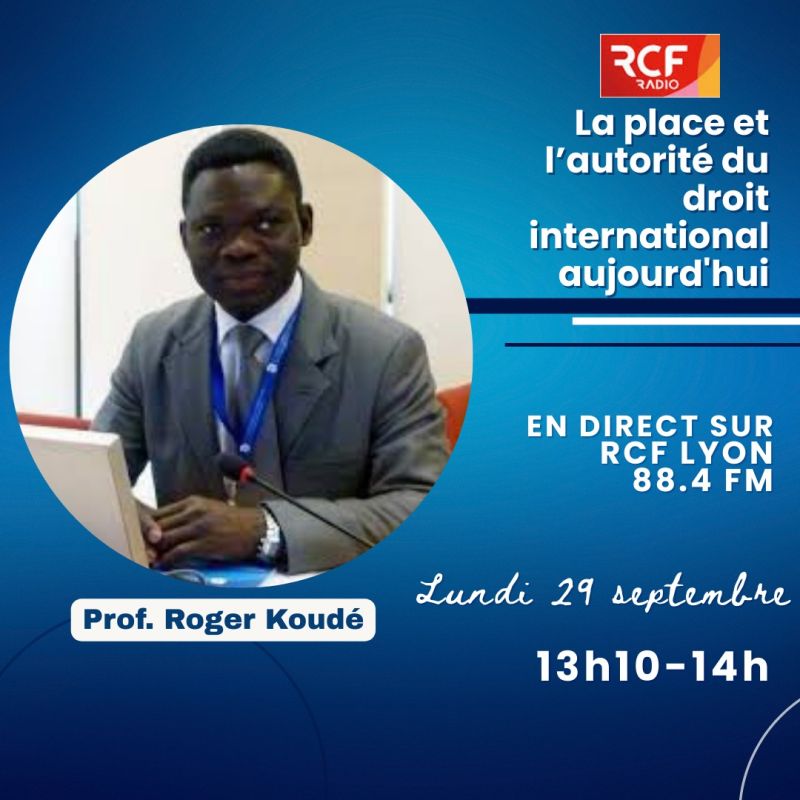
Professor Roger K. Koudé, who holds the UNESCO Chair on Memory, Cultures and Interculturalism (Chaire Unesco « Mémoire, Cultures et Interculturalité ») was a guest on RCF-Lyon’s Pour bien comprendre (To Understand Well) Program on 29 September.
Program host Grégoire Gindre interviewed Professor Koudé, along with his colleague, Professor Mathilde Philipp-Gay, on the role and authority of International Justice, particularly in light of recent global events.
The Program website states:
« Depuis mars 2023, le président russe Vladimir Poutine est visé par un mandat d’arrêt de la cour pénale internationale. En novembre 2024, c’est au tour du Premier ministre israélien Benyamin Netanyahu d’être visé – à son tour – par un mandat d’arrêt de la Cour pénale internationale. Cependant, bien qu’en fuite, ils restent peu inquiétés par la plus haute juridiction pénale. Que ce soit à Gaza ou en Ukraine, on observe également les droits de la guerre et humanitaires bafoués depuis plusieurs années, de quoi peut être réinterroger l’utilité et la place du droit international. Pourtant, des espoirs demeurent et l’utilité du droit international ne soit sûrement pas être remis en cause. »
“Since March 2023, Russian President Vladimir Putin has been the subject of an arrest warrant issued by the International Criminal Court. In November 2024, Israeli Prime Minister Benjamin Netanyahu was also targeted by an arrest warrant from the International Criminal Court. However, despite being fugitives, they remain largely untroubled by the highest criminal jurisdiction. Whether in Gaza or Ukraine, the laws of war and humanitarian rights have been violated for several years, prompting a possible re-evaluation of the role and relevance of international law. Yet, hope remains, and the usefulness of international law should certainly not be called into question.”
Listen to the episode in French on RCF
The UNESCO Chair « Mémoire, Cultures et Interculturalité », hosted by the Catholic University of Lyon in France, is a member of the UNITWIN IDIU Network.
